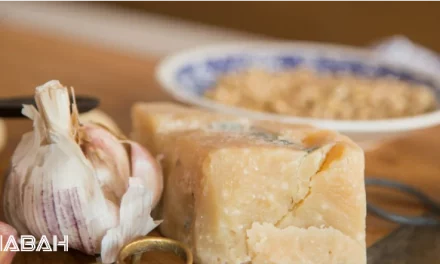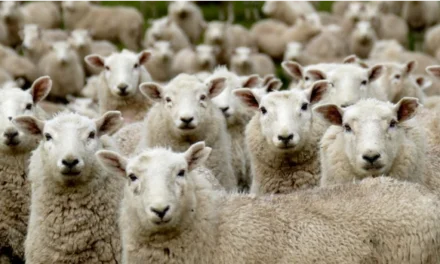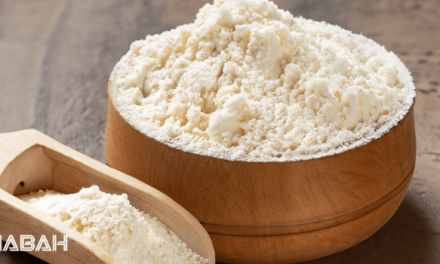As a consumer who values both religious dietary restrictions and the desire for a diverse culinary experience, I have often found myself intrigued by the mysterious world of gelling agents. In this article, we will delve into the fascinating realm of gelatine, and pectin, unraveling their halal or haram status to empower readers with the knowledge to make informed choices about the foods they consume.
A Guide to Halal Gelatins and Thickeners
Gelling agents, also known as thickeners, are food additives used to alter the texture of food. They increase viscosity and allow liquids to set into solids or semi-solids. Common gelling agents include:
- Gelatin
- Pectin
- Carrageenan
- Gums (guar gum, xanthan gum, etc)
In Islamic dietary laws, foods and ingredients are categorized as either halal (permitted) or haram (prohibited). The Quran provides guidelines on what foods are permissible, but scholars have debated the halal status of some modern food additives.
When it comes to gelling agents, the main concerns are:
- Source – Whether derived from a plant vs animal source
- Alcohol – Alcohol is prohibited according to Islamic law
- Pork – Pork and pork by-products are haram
This article will examine the halal status of common gelling agents based on these criteria. The goal is to clarify which thickeners and stabilizers are halal certified or acceptable for Muslim consumers seeking to follow Islamic dietary regulations.
Common Gelling Agents
There are several gelling agents commonly used in food production:
Gelatin
- Typically made by boiling animal bones, tissues, and skins
- Mainly derived from pork
- Gelatin is not halal as it comes from haram sources
- Alternatives: Pectin, gums
Pectin
- Extracted from the cell walls of fruit like apples or citrus peels
- Generally considered halal, made permissible by most Islamic schools
- Can be sourced from halal fruits
Carrageenan
- Extracted from red seaweed
Gums
- Produced from plant sources like seeds, seaweed, or bacteria
- Guar gum from guar bean seeds
- Xanthan gum from bacteria
- Typically halal as they come from plants
Overall, gelling agents derived from plant sources tend to be halal, while those from pork are haram.
Halal Status of Specific Types Of Gelling Agents
Here is a breakdown of the halal status of some common gelling agents:
Gelatin
- Made from pork or other animal by-products
- Not halal certified
- Considered haram by Islamic scholars
Gelatin is definitely not Halal. Gelatin is an animal protein derived from the skins and bones of pigs and cows. It is impermissible for Muslims to eat or drink.
Pectin
- Obtained from fruits like apples, grapes, and citrus fruits
- Permitted according to most scholars
- Can be sourced from halal fruits
Carrageenan
- Derived from red seaweed
- Some dispute over halal status
- May be purified using alcohol during processing
Gums
- Guar gum, xanthan gum, Arabic gum obtained from plants
- No haram ingredients
- Generally considered halal
The source and processing method impact the halal status of gelling agents. When in doubt, check with the manufacturer.
Sourcing Halal Gelling Agents
When selecting commercially made products, look for halal certification to ensure gelling agents used are permissible:
- Check packaging for halal marks from approved certification bodies
Halal certified products will carry the official stamp of approval from organizations like the Islamic Food and Nutrition Council of America (IFANCA) or the Department of Islamic Development Malaysia (JAKIM).
-
Call or email manufacturers to ask about sources
-
Review company websites for halal compliance statements
Manufacturers that cater to Muslim consumers will often list which products are halal-certified and provide details on ingredients and suppliers.
When making food yourself:
-
Use gelling agents that are plant-based, not animal-derived
- Examples: pectin, guar gum, gum arabic
-
Check alcohol content
- Some gums undergo alcohol extraction
- Opt for halal-certified pectin from approved suppliers
Thoroughly vetting sources and contacting companies directly can help identify halal options.
Alternatives for Achieving Food Texture
If avoiding non-halal gelling agents, there are some alternatives to help set and stabilize foods:
-
Use naturally gel-forming ingredients:
- Chia seeds and flax seeds create gels
- Gelatinous stocks made from bones/meat
- Tapioca starch from cassava root
-
Rely on starches and other thickeners:
- Cornstarch or arrowroot powder
- Wheat flour or other grain flours
-
Accept differences in texture:
- Jams without pectin may be looser
-
Jello made with agar may differ from gelatin versions
“Gelatin alternatives like pectin and agar will provide different textures. While results may not be exactly the same, halal ingredients can produce delicious outcomes.”
With some substitutions and experiments, halal versions of gelled desserts, sauces, and other items can be achieved.
Frequently Asked Questions – Is Gelling Agent Halal
What is a gelling agent?
A gelling agent is a substance that is added to food products to provide a gel-like texture or to thicken the consistency of the food.
Is pectin halal?
Yes, pectin is considered halal as it is a plant-based gelling agent derived from fruits, especially citrus fruits. It is widely used in the food industry as a thickening and gelling agent.
Is gelatin halal or haram?
Gelatin is considered haram in Islam as it is derived from animal products, specifically from the skin, bones, and connective tissues of animals. Therefore, it is not considered halal.
What are some other halal gelling agents apart from pectin?
Some other halal gelling agents that are commonly used include agar-agar, carrageenan, and xanthan gum. These gelling agents are plant-based and do not contain any animal-derived ingredients.
Can pectin be used as a thickening agent?
Yes, pectin can be used as a thickening agent. It has the ability to absorb water and form a gel-like substance, which helps in thickening the consistency of food products such as jams and desserts.
Is pectin according to Islamic law?
Yes, pectin is considered halal according to Islamic law as it is derived from plant sources and does not contain any haram ingredients.
Can gelling agents be used in halal and vegan food?
Yes, halal gelling agents such as pectin, agar-agar, and carrageenan can be used in both halal and vegan food products. These gelling agents do not contain any animal-derived ingredients and are suitable for halal and vegan dietary requirements.
Are there any haram gelling agents?
Yes, some gelling agents such as gelatin (derived from animals) and certain types of carrageenan (which may contain trace amounts of alcohol) are considered haram and should be avoided in halal dietary requirements.
What are the common uses of gelling agents?
Gelling agents are commonly used in the food industry to thicken and stabilize various food products. They are often used in the production of jams, jellies, desserts, candies, and other food items.
Conclusion
In summary, the halal status of gelling agents depends on:
- Source – Animal-based is typically haram, plant-based is halal
- Processing – Use of alcohol or pork products can contaminate
- Certification – Look for halal symbols from accredited organizations
Some common guidelines:
- Gelatin is not halal due to animal bones/tissue used
- Pectin and gums from plants are generally halal
- Carrageenan may be questionable depending on processing
“Muslims must exercise great care in selecting processed foods with these additives. Checking the source and composition is key to ensuring compliance with Islamic law.”
When in doubt, natural gels from halal sources like chia or flax seeds can be substituted in recipes. With care and diligent label reading, Islamic dietary restrictions around gelling agents can be followed.





